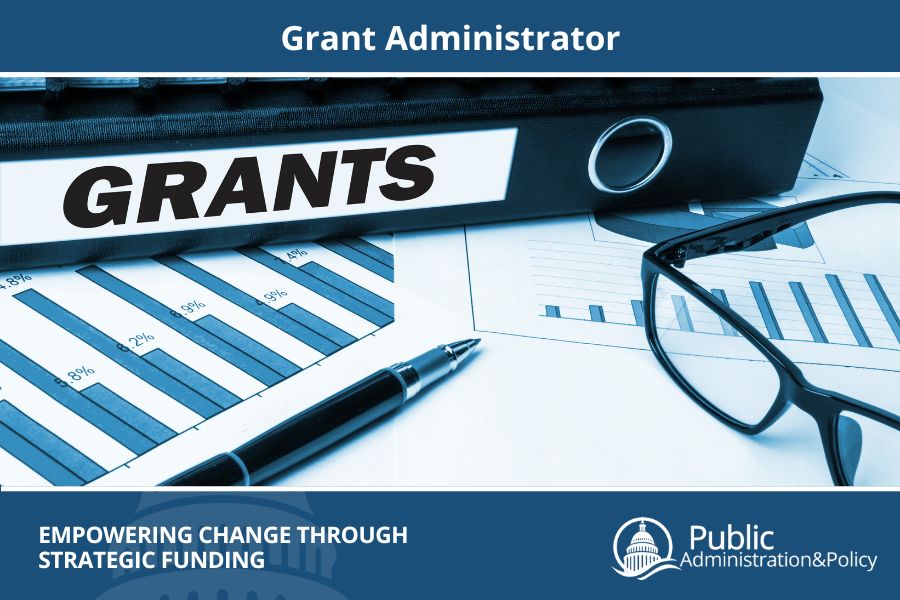How to Become a Grant Administrator
Unlock Potential by Securing Funding for Transformational Projects That Matter
Grant Administrators play a crucial role in turning vision into reality by securing and managing the funding necessary for transformative initiatives. They are the backbone of projects that drive meaningful change in communities, ensuring financial resources are allocated effectively and responsibly to healthcare programs, educational opportunities, and community development efforts. Their expertise in resource management, compliance, and strategic planning makes them indispensable in maximizing the impact of grants.
This career is an excellent fit for individuals who excel in organization, strategic thinking, and attention to detail while passionate about making a tangible difference in the world. As a Grant Administrator, you’ll contribute directly to initiatives that improve lives and strengthen communities, ensuring projects have the financial support they need to succeed and thrive.

Table of Contents
What Is a Grant Administrator?
A Grant Administrator manages grants from application to fund allocation and reporting. These professionals work closely with civil servants, public managers, and organizational leadership to ensure funds are used efficiently and align with the grantor’s objectives.
Key Responsibilities
- Grant Writing and Application: Crafting persuasive proposals to secure funding.
- Budget Analysis: Allocating funds and ensuring compliance with financial regulations.
- Monitoring Compliance: Ensuring adherence to federal, state, and private sector guidelines.
- Program Evaluation: Assessing funded projects’ success and identifying improvement areas.
- Collaboration: Engaging with elected officials, program managers, and civil service representatives.
Grant Administrators often serve as the backbone of financial management for community service programs, supporting diverse initiatives across sectors.
Step 1: Complete Your Degree
Educational qualifications are essential for aspiring Grant Administrators. A degree in Public Administration, Public Policy, or related fields equips professionals with the knowledge and skills necessary for success.
Relevant Degrees for Grant Administrators
- Bachelor of Public Administration: Builds foundational knowledge in budgeting, public management, and financial compliance.
- Master of Public Administration (MPA): Offers advanced training in grant writing, program evaluation, and leadership.
- Master of Public Policy (MPP): Focuses on analyzing policies and designing impactful programs.
- Ph.D. in Public Administration: Prepares individuals for senior-level positions or academic careers in grant management.
Why Choose Online Programs?
Online degree programs are ideal for full-time professionals seeking flexibility. Many universities in the United States offer online MPA programs tailored to working individuals, allowing them to balance education with their responsibilities.
To begin your journey, consider pursuing a Master of Public Administration (MPA) or Bachelor of Public Administration.
Step 2: Learn About Grant Administrator Salaries
Grant Administrators are well-compensated for their expertise, with salaries varying based on education, experience, and employment sector.
Average Salary Ranges
- Entry-Level Roles: $50,000–$65,000 annually.
- Mid-Career Roles: $65,000–$85,000 annually.
- Senior Roles: $85,000–$110,000+ annually.
Factors Influencing Salary
- Education Level: A master’s degree, such as an MPA, often leads to higher salaries.
- Experience: Advanced experience in budget analysis and grant writing significantly increases earning potential.
- Sector: Federal government and prominent nonprofit roles typically offer higher salaries than local or state positions.
Refer to the Bureau of Labor Statistics (BLS) for more detailed salary information.
Step 3: Build Financial and Organizational Skills
Grant Administrators must possess strong financial management and organizational skills to excel in their roles.
Essential Skills for Grant Administrators
- Budget Analysis: Allocating funds effectively and ensuring compliance with grant guidelines.
- Program Evaluation: Measuring the impact of grants and ensuring alignment with organizational goals.
- Attention to Detail: Ensuring all grant documents meet strict standards and deadlines.
- Communication Skills: Writing compelling grant proposals and engaging with stakeholders.
- Leadership: Collaborating with civil servants, elected officials, and public managers to achieve program objectives.
Certification such as the Certified Fund Raising Executive (CFRE) can further enhance your qualifications.
Step 4: Find a Grant Administrator Job
Grant Administrators are in demand across a wide range of sectors, including public service, nonprofit organizations, and private consulting.
Industries Employing Grant Administrators
- Nonprofit Sector: Managing funding for community service programs in healthcare, education, and social services.
- Government Agencies: Overseeing federal, state, and local grants to support public affairs initiatives.
- Educational Institutions: Securing funding for research, scholarships, and community outreach.
- Private Sector: Assisting corporations with philanthropic grant distribution and compliance.
Notable Employers
- National Institutes of Health (NIH)
- United States Agency for International Development (USAID)
- Grants.gov
Stay informed about job postings on platforms like Idealist and USAJobs.gov.
Career Opportunities in Grant Administration
A career in Grant Administration offers numerous opportunities in both the public and private sectors. Popular roles include:
- Grant Coordinator: Overseeing applications and fund allocation.
- Development Director: Leading fundraising and grant acquisition for large organizations.
- Program Manager: Supervising the implementation of grant-funded projects.
- Budget Analyst: Evaluating financial performance and ensuring compliance with funding guidelines.
Prominent organizations hiring Grant Administrators include:
Sources
- Bureau of Labor Statistics (BLS). “Occupational Outlook Handbook: Financial Analysts and Fundraising Managers.” https://www.bls.gov
- Certified Fund Raising Executive (CFRE). “Certification Requirements and Benefits.” https://www.cfre.org
- Grants.gov. “Resources for Grant Professionals.” https://www.grants.gov
Acknowledgments
Content inspired by insights from nonprofit organizations, government agencies, and academic experts in grant management.
